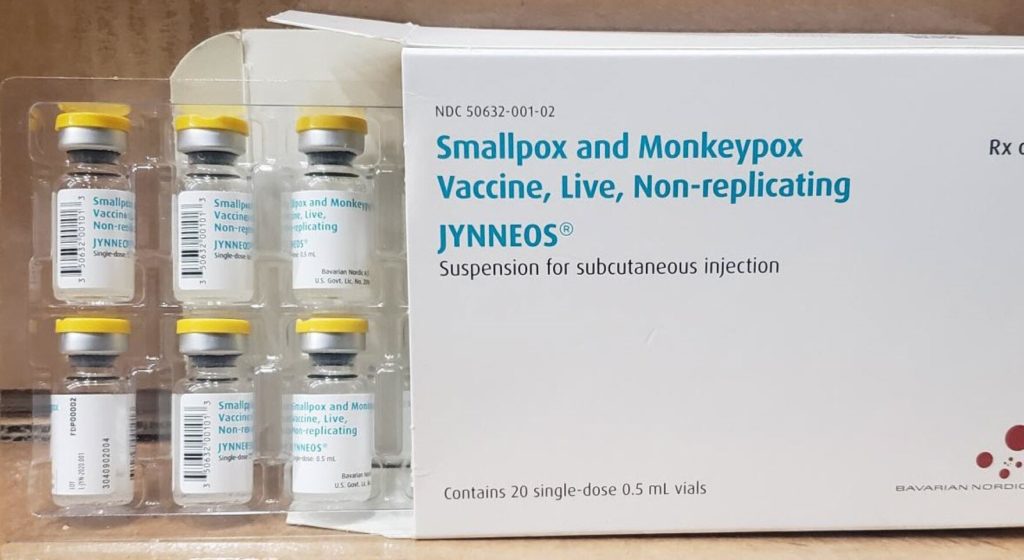
Tennessee is switching to smaller doses of the monkeypox vaccine and injecting them between layers of skin. The method has been recommended by federal health officials, but it’s not a simple jab and requires some training.
Intradermal shots require using the needle at an angle and administering a bubble of vaccine just beneath the epidermis. For the monkeypox vaccine, a one-fifth dose has been shown to still offer protection because there’s a stronger immune response in the skin.
Some local health departments have already moved to the intradermal method, according to a state health official. But Metro Nashville, which has seen the most cases in the state, is still in a training phase and plans to move to the micro doses by the end of the month.
“Some of us do get out of practice,” says Dr. Joanna Shaw-KaiKai, who is an infectious disease specialist at the Metro Public Health Department. “We do have nurses who are trained in intradermal administration, but we need more staff to refresh their training.”
Intradermal injections are also used for tuberculosis testing.
Shaw-KaiKai says she hopes the micro doses will allow for more people to get the vaccine. Currently, shots are limited to those who believe they’ve come in contact with monkeypox, which until now has been mostly men who have sex with men. The virus is not considered a sexually transmitted disease, and can be spread with other types of close contact.
Even with the effort to stretch supplies, Tennessee isn’t planning to greatly widen access just yet because the federal government is also reducing its allocation to the state to account for the new dosing.
The vials are coming from a national stockpile. Tennessee has received nearly 6,000 doses though the state has requested close to 11,000, according to tracking from the U.S. Department of Health and Human Services.
As of Thursday, Tennessee has 99 cases, with 52 of them in Nashville. An additional 24 were reported in the last week.

